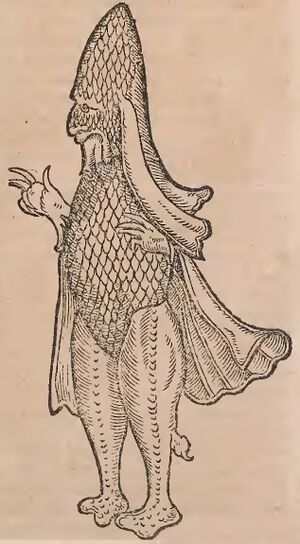Merbishop: Difference between revisions
From Marinelexicon
No edit summary |
No edit summary |
||
| (4 intermediate revisions by 2 users not shown) | |||
| Line 1: | Line 1: | ||
<gallery mode= | <gallery mode=packed heights=30px class=center> | ||
PT.jpg|Português|link=https://wiki.uib.no/lexicomarinho/index.php/Bispo_marinho | PT.jpg|<small>Português</small>|link=https://wiki.uib.no/lexicomarinho/index.php/Bispo_marinho | ||
NO.jpg|Norsk|link=https://wiki.uib.no/marinleksikon/index.php/Havbiskop | NO.jpg|<small>Norsk</small>|link=https://wiki.uib.no/marinleksikon/index.php/Havbiskop | ||
</gallery> | </gallery> | ||
| Line 10: | Line 10: | ||
English | ;English | ||
:Merbishop | :Merbishop | ||
;Portuguese | ;Portuguese | ||
| Line 23: | Line 23: | ||
:Évêque marin | :Évêque marin | ||
;Spanish | ;Spanish | ||
: | :Obispo marino (literal translation) | ||
;Catalan | |||
:Bisbe marí | |||
;Italian | ;Italian | ||
: | :Pesce vescovo; Vescovo marino (literal translation; not known in Italy) | ||
;Greek | ;Greek | ||
: | :Ανθρωπόμορφo ψάρι που αναφέρεται από τον Κορνήλιο Αυρήλιο | ||
== References == | == References == | ||
Latest revision as of 08:23, 19 May 2021
-
Português
-
Norsk
Marine Lexicon — Marine mammals — Mythical creatures — Activities related to marine mammals — Toponomy — Zooarchaeology — Historical sources — Cite Marine Lexicon

merbishop • Antropomorph fish that is mentioned by Cornelius Aurelius in 1517 [1] and picked up again by the Swiss naturalist Conrad Gesner in his chapter on merpeople[2]. Apparently, a merbishop was captured near Poland in 1431. Next to merbishops, Gesner also mentions mermonks living in the Baltic Sea.
- English
- Merbishop
- Portuguese
- Bispo marinho
- Norwegian
- Havbiskop (literal translation; not known in Norwegian mythology)
- Dutch
- Zeebischop
- German
- Fischbischof
- French
- Évêque marin
- Spanish
- Obispo marino (literal translation)
- Catalan
- Bisbe marí
- Italian
- Pesce vescovo; Vescovo marino (literal translation; not known in Italy)
- Greek
- Ανθρωπόμορφo ψάρι που αναφέρεται από τον Κορνήλιο Αυρήλιο

